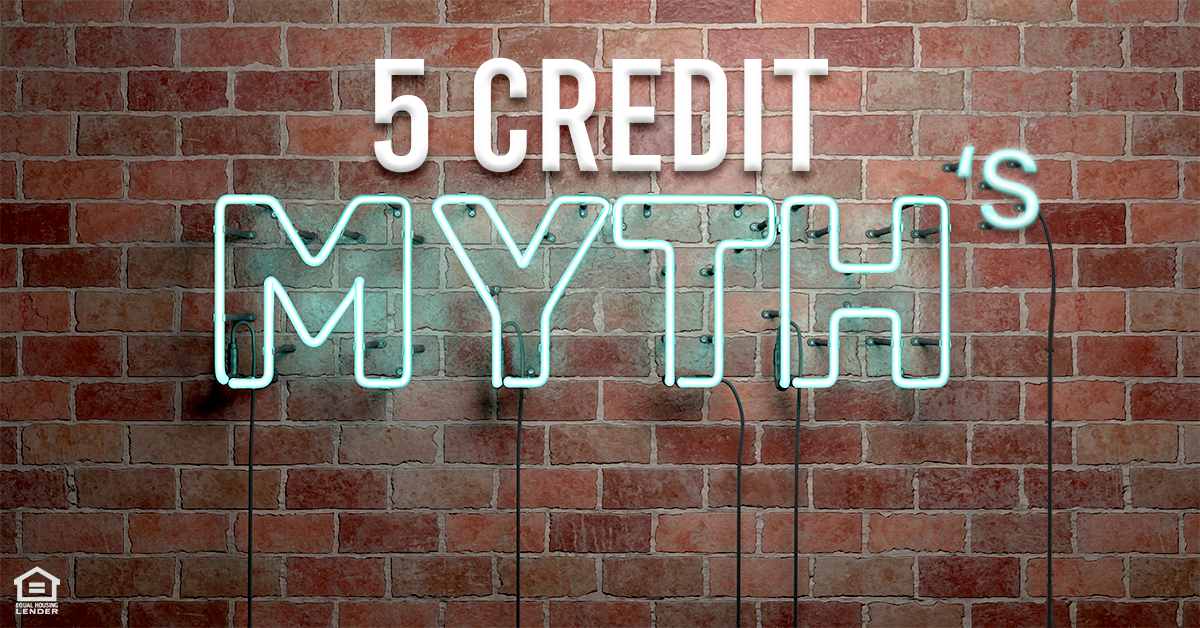
Debunking 5 Common Credit Inquiry Myths

It’s time to separate credit facts from credit fiction.
Vic Melillo, credit master for over 30 years, offers his knowledge on common credit myths and how to understand your credit when looking for a home.
Credit Score Overview
A Fair Isaac Corporation (FICO) score is a three-digit number that is based on information within your credit reports. FICO scores range between 300-850, with scores between 650-740 being recognized as “good”. Your FICO score helps lenders determine how likely you are to repay a loan.
A FICO score is the industry standard for measuring credit. Nationwide, there are only three credit bureaus that provide all credit scores and credit history: Experian, TransUnion, and Equifax. Factors such as payment history, credit utilization ratio, number of accounts, and length of credit history are used to determine your credit score. Making timely payments, keeping a low credit utilization ratio, and maintaining open lines of credit to establish credit history can help to improve your score.
Borrowers should refrain from opening new lines of credit during the mortgage process, or risk interfering with their current loan eligibility.
What is a Credit Inquiry?
Credit inquiries exist for your protection. They ensure that no one can access your credit without your permission. Credit inquiries serve as a paper trail for when your credit was viewed and by whom.
Myth #1: All Credit Inquiries Affect My Score
It’s important to recognize that there are two types of credit inquiries: soft and hard inquiries. Soft inquiries will not affect your FICO score. Hard inquiries, such as applying for a new credit card, will affect your score.
While credit inquiries play an important role in assessing risk, they are only responsible for approximately 10% of what makes up your FICO score. Factors such as your overall debt burden and if you pay your bills on time have a greater weight on your credit report.
While applying for a handful of credit cards within a short period of time can have an effect on your credit score, it’s important to recognize that all credit inquiries are not treated equally.
FICO recognizes that looking for an auto loan, student loan, or mortgage may involve multiple lenders requesting your credit report, even though you’re only looking for one loan. Typically, as long as these inquiries take place within a 30 day period, they are treated as a single inquiry and will have little effect on your credit score.
Myth #2: I Should Prepare for My Score to Drastically Change
In general, credit inquiries have a small effect on your credit score. FICO scores range between 300-850. One credit inquiry will typically take less than five points off of your score. Borrowers should be mindful of credit inquiries, but not fearful of them. They’re often a necessary step for securing a new loan.
Credit inquiries can have a greater impact if you only have a few accounts or a short credit history. And while a large number of credit inquiries can also mean greater risk, it’s important to remember that factors such as paying your bills on time and your overall debt burden still have a larger effect on your score.
Myth #3: Rate Shopping Will Negatively Affect My Score
FICO treats loans that commonly involve rate-shopping, such as mortgage, auto, and student loans, differently than opening other lines of credit. For these types of loans, FICO ignores inquiries made in the 30 days prior to scoring. If you find a loan within 30 days, any inquiries that occurred while you were rate-shopping won’t affect your score.
Myth #4: Checking My Credit Will Hurt My Score
Checking your credit report is a great habit for noticing any errors or fraudulent activity. And, contrary to popular belief, checking your own credit report has no effect on your score.
Checking your own report is a soft inquiry. Soft inquiries don’t show up on your report or affect your credit score.
Myth #5: I Can’t Have Any Debt if I Want to Purchase a Home
The majority of people have some debt, such as student loans or car payments. And while your debt does influence your ability to buy a home, how much debt you are carrying compared to your income, known as your debt-to-income ratio, is what matters most.
Your debt-to-income (DTI) ratio is calculated by taking the total of your recurring monthly debt payments and dividing it by your total monthly income. As a rule of thumb, you should strive to have a DTI ratio of 36% or less.
Paying down your debts or generating more income are practical ways to improve your DTI ratio. Always speak with your trusted mortgage advisor to find solutions for improving your DTI ratio as well as your credit score.